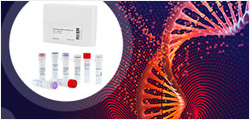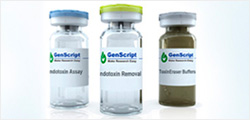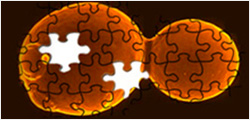MIP-1α/CCL3, Mouse
MIP-1 Alpha, also known as CCL3, G0S19-1 and SCYA3, LD78 alpha, is an inflammatory chemokine. MIP-1α belongs to the CCL chemokine family, and shares 68% homology with MIP-1β. The mature form of MIP-1α contains 69 amino acids, exists as dimers in solution, and tends to undergo reversible aggregation. It binds to CCR1, CCR4 and CCR5, and participates in the host response to invading pathogens by regulating the trafficking and activation of inflammatory cells, such as macrophages, lymphocytes, NK cells and dendritic cells. MIP-1 alpha polymorphisms are associated with HIV susceptibility or resistance. Recombinant MIP-1 alpha induces a dose-dependent inhibition of HIV and SIV infection. Upon stimulation by endogenous and exogenous agents such as Interleukin-1β, Interferon-γ, and lipoteichoic acid from gram-positive bacteria, monocytes are able to secrete significant amounts of MIP-1α. MIP-1α augments the adhesions of T lymphocytes, monocytes, and neutrophils to vascular cell adhesion molecule 1. Additionally, in wounds, MIP-1α chemoattracts macrophages in order to accelerate the tissue repair process.
| Z03270 | |
|
|
|
| ¥12,685.00 | |
|
|
|
|
|
|
| Ask us a question | |








































